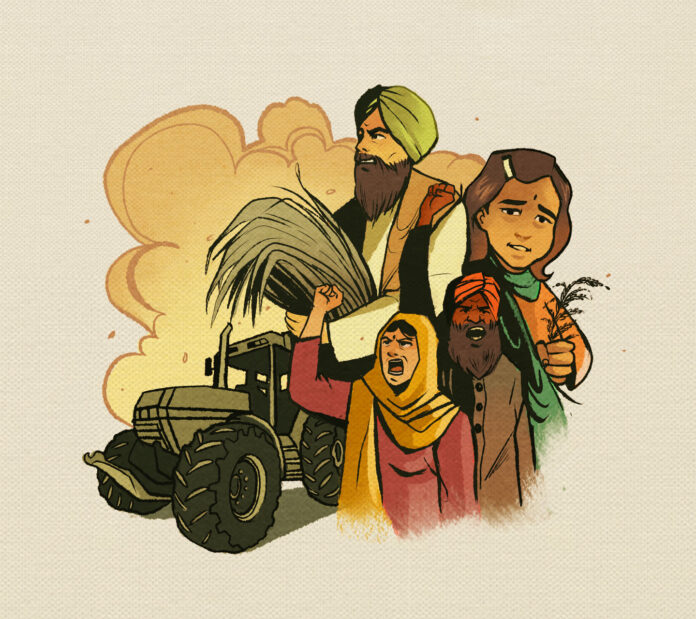Rihanna may have called the attention of many, but what’s happening in India is a story familiar to the peoples of the world.
The farmers of India are holding protests in unprecedented numbers — news that, the superstar musician asserts, the world should be talking about. The target of the farmers’ opposition: three farm laws railroaded by the Narendra Modi government, the implementation of which has been temporarily halted by the country’s highest court.
The laws, in essence, will enable Indian farmers — who constitute the majority, or more than 60 per cent, of the country’s population — to enter into agreements with private entities for the sale of agricultural produce even before production.
They will in effect dismantle the minimum support price or MSP system, which guarantees farmers’ income and the production of essential food stuffs amidst changes in agricultural production.
Defenders of the laws invoke the catchwords of the so-called “free market”: flexibility, efficiency, freedom, choice, empowerment, new technologies. The laws are being pushed in to reduce the the state’s role in agriculture — a seed supply system owned by the government, meager subsidies to farmers, among others.
The peoples of the world are familiar with this scheme: contract farming. They are also familiar with the rhetoric: “There is no such thing as society. There are only individuals and families,” according to former UK prime minister Margaret Thatcher, champion of policies popularly labeled “neoliberal.”
Indeed, neoliberal policies in agriculture have always been sold as pro-farmer at first, only to attack farmers’ livelihoods in the long run. They seek to appeal to the immediate interests of farmers as individuals and breadwinners, and hide the long-term impacts on their class and nation — and, ultimately, on themselves.
The Samyukta Kisan Morcha or SKM, an alliance of more than 40 farmer unions, is not convinced by the government’s rhetoric. Leading the protests, it says that removing the MSP system will leave farmers at the mercy of big corporations.
While capitalists may offer farmers attractive prices at first, the subsequent episodes will not be as pleasing. As the Research Unit for Political Economy states, by strengthening capitalist control over agriculture, the laws will deepen farmers’ indebtedness — the reason for the suicide of more than 300,000 farmers since the late 1990s — and will lead to greater landlessness among their ranks.
The progressive think-tank says the laws are key to the takeover of Indian agriculture by big local and foreign monopoly capitalists close to the Modi regime, and will usher in nothing but corporate control over the sector. Profit-motivated entities unaccountable to the people will more blatantly rule over India’s agriculture.
As such, what’s left of India’s food and economic sovereignty will be ceded to these capitalists, and even what’s left of the country’s food security will be imperilled. The farmers suffer, the people of India suffers.
As the case of India shows, authoritarian populism can go hand-in-hand with neoliberal economic policies. Leaders may promise prioritizing the interests of their people but they, in the concrete, can uphold the interests of comprador capitalists, monopoly capitalists, and finance oligarchs.
It is clear that leaders like Modi do not see the necessity of food and economic sovereignty given the challenges to global interconnectivity posed by the COVID-19 pandemic. Instead, they see the economic downturn accelerated by the pandemic as making even more necessary the opening up of their countries’ economies and the taking of more desperate measures to attract foreign investors.
As is usual with many governments, the Modi government, faced with huge and mounting protests, has resorted to attempts to discredit the protest movement. Instead of responding to the legitimate demands of the farmers, it is resorting to demagoguery and repression.
Rihanna may have called the attention of many, but what’s happening in India is a familiar story to the farmers and peoples of the world. The latter, too, have been victimized by the corporate takeover of agriculture and of government collusion with this effort.
Speaking after the successful February 6 road blockade protest, the SKM said that the government’s proposal to suspend the laws for 12-18 months “was not acceptable,” as it demands that the laws be junked completely.
The peoples of the world are called upon to express solidarity with the farmers and people of India and the latter’s social movements.###


















